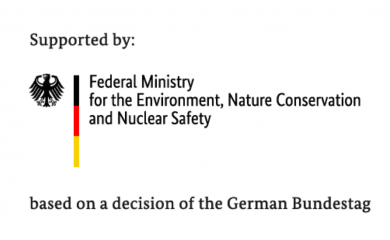Work is continuing on the Oasis Platform for Climate and Catastrophe Risk Assessment in Asia project, which has now entered its final year. The project is reaching its successful conclusion as developments in climate risk insurance continue to expand along with recognition of the need for open data to make such schemes work. Launched in June 2018, the project is co-developing new open catastrophe risk models for flood in the Philippines and cyclone in Bangladesh, as described here. Catastrophe models are computer applications that calculate the probability and severity of losses from extreme events such as an earthquake, cyclone or flood.
A major component of the project is capacity building on catastrophe risk modelling and climate impact assessment. In 2019 the project delivered multi-day workshops in Manila. The first was a three-day workshop on climate input data processing and analysis, conducted by Dr. Christoph Menz and Dr. Anne Gaedeke from the Potsdam Institute for Climate Impact Research (PIK), one of the leading institutes globally for climate research. The two instructors supported participants in using data from climate observations and simulations for practical applications in the field of climate change impact research.
In attendance were hydrologists, meteorologists, engineers, researchers, and environmental scientists from national government agencies Philippine Atmospheric, Geophysical and Astronomical Services Administration (PAGASA), the Department of Public Works and Highways (DPWH), and the Metropolitan Manila Development Authority (MMDA); local government disaster risk reduction and management offices Makati City, Pasig City, and Quezon City, departments from the Ateneo de Manila University, Mapua University, the University of Asia and the Pacific, and the University of the Philippines in Diliman and in Los Baños; and the Manila Observatory.

The second event was a two-day workshop covering a thorough overview of of catastrophe modelling, the Oasis Project and how to use the Oasis Loss Modelling Framework (Oasis LMF) platform. In attendance were over a hundred representatives from the government, the academe, the non-life insurance industry, and the development sector.
The models can be used in variety of decision-making applications, such as understanding contingent financial losses from disasters, national and local budget planning, risk transfer mechanisms and development of insurance products, land-use planning and economics of physical climate change adaptation mechanisms.
You can read more about the project on the Oasis website https://oasislmf.org/news/news-update-iki-project. Material from the workshops is publicly available from the following websites. The PIK workshop material on Climate Data Processing and Analysis is here and all Oasis presentations from workshops can be accessed via Dropbox here.
The project lead is Oasis LMF with international implementing partners the Potsdam Institute of Climate Impact Research (PIK) and the UK Met Office. Local leading partner in the Philippines is Nat Re, with the University of the Philippines Geodetic Engineering Department, PAGASA, KatRisk and Willis Towers Watson.

